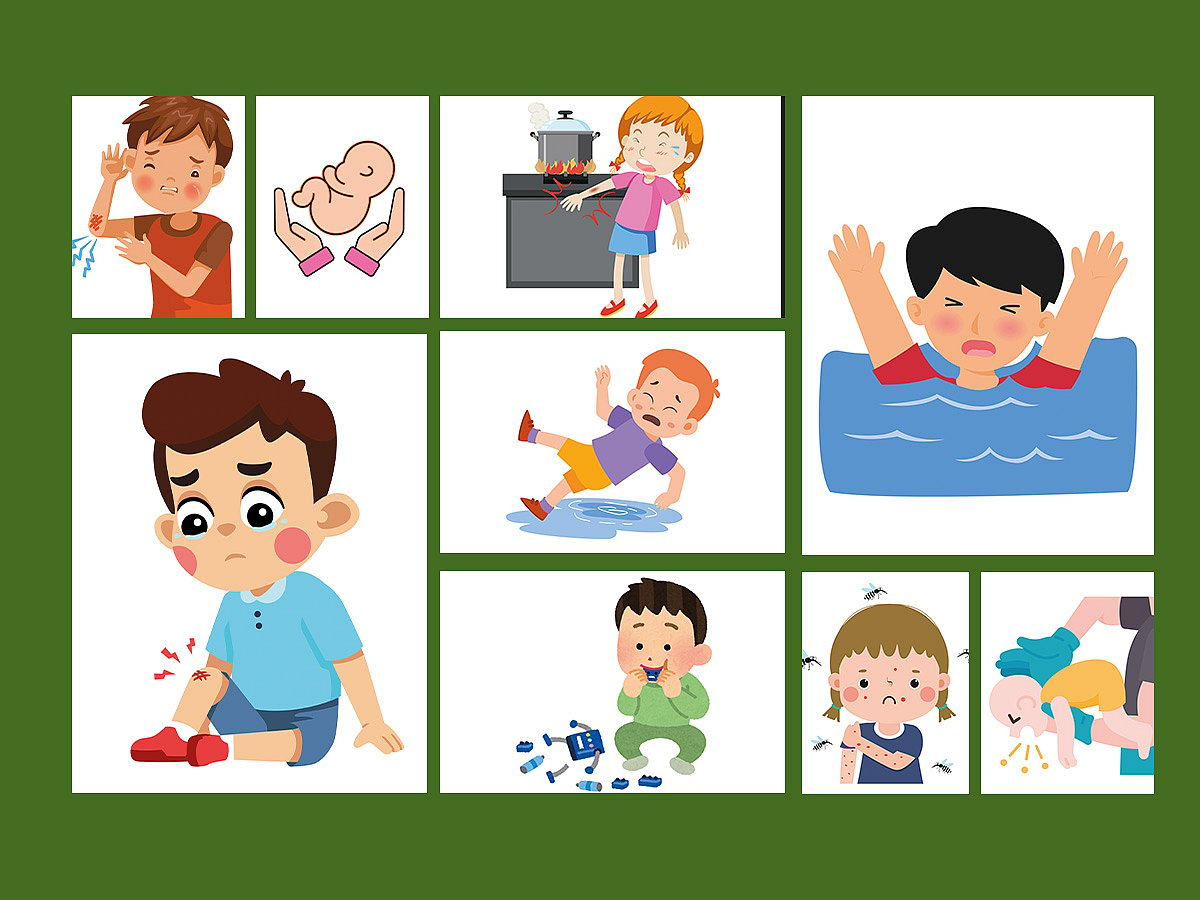Essential tips for handling paediatric emergencies: Be prepared to save lives
Responding at the right time can make a life-saving difference

"Children bring boundless joy and energy into our lives, but their natural curiosity also exposes them to risks. Experts from Zulekha Hospital recommend being familiar with key emergency responses to act swiftly and confidently when needed. Paediatric emergencies can strike suddenly, and the way you respond in the first few minutes can make a life-saving difference. Preparation, prevention, and calm action are the keys."
Choking and suffocation
Prevention: Cut food into small pieces, keep coins, batteries, and toys out of reach, and never leave children unsupervised while eating. Infants should always sleep on their backs in a crib free of pillows, blankets, or plastic covers.
What to do: For infants, give five back slaps followed by five chest thrusts. For older children, perform abdominal thrusts (Heimlich manoeuvre). Call emergency services if the child cannot breathe, turns blue, or becomes unconscious.
Burns and Electrical Injuries
Prevention: Keep hot drinks, pots, and appliances out of children’s reach. Use safety covers on sockets and block access to kitchens. Establish “no-touch zones” around stoves and heaters.
What to do: Remove the child from danger and cool the burn under running water for at least 10 minutes. Never use ice, butter, or toothpaste. For deep, extensive, or facial burns, or if breathing is affected, seek immediate emergency care.
Falls
Prevention: Use bed railings, secure heavy furniture to walls, install stair gates, and place cushioned flooring where possible.
What to do: Comfort the child and apply ice to swelling. Go to the ER if the child vomits, is excessively sleepy, inconsolable, has fluid from the ears or nose, or shows imbalance or loss of coordination.
Accidental Ingestion
Prevention: Store medicines, detergents, and chemicals in locked cabinets, always in their original packaging. Dispose of unused drugs safely.
What to do: Do not induce vomiting unless instructed by a professional. Call poison control or emergency services immediately and carry the container for reference.
Drowning
Prevention: Even a few centimetres of water in bathtubs, buckets, or open containers can be fatal.
Prevention: Never leave children unattended in baths and avoid leaving water-filled containers uncovered.
Cuts and wounds
What to do: Wash with clean water, apply antiseptic, and dress with a sterile bandage. Remove dirt or small glass fragments carefully. Visit the ER if sutures may be required.
Insect Bites
What to do: For bee stings, apply an alkaline substance such as baking soda. For wasp stings, apply vinegar to neutralise the venom.
Pulled Elbow (Nursemaid’s Elbow)
Prevention: Avoid lifting or swinging children by their hands or wrists.
What to do: If the child refuses to move the arm, do not attempt to correct it at home. A doctor can treat it quickly and safely.
Sudden Infant Death Syndrome (SIDS)
Prevention: Always place babies on their backs to sleep on a firm mattress without loose bedding. Avoid co-sleeping on soft surfaces and maintain a smoke-free environment. Vaccinations do not increase the risk of SIDS.
What to do: If a baby is found unresponsive, call emergency services and begin CPR if trained.
Preparedness saves lives
First aid is not just medical care, it is immediate action that keeps a child safe until professionals arrive. Learning CPR, keeping emergency numbers visible, and child-proofing your home are simple steps that protect lives.
In case of Pediatric Emergency, call Zulekha Hospital immediately on +971 600 52 4442
Sign up for the Daily Briefing
Get the latest news and updates straight to your inbox
Network Links
GN StoreDownload our app
© Al Nisr Publishing LLC 2026. All rights reserved.